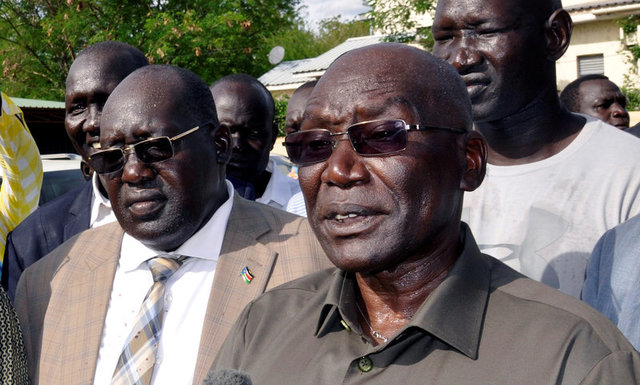South Sudan’s ousted army chief returns to capital


South Sudan’s ousted army chief Paul Malong returned to the capital Juba on Saturday, saying he had no intention of staging a revolt against President Salva Kiir’s government.
Kiir dismissed General Malong – the man who has led his campaign against rebels – on Tuesday without spelling out his reasons. Malong then left Juba with a convoy of vehicles for his home state of Aweil in the northwest, raising speculation over his next move.
On Friday, Kiir said Malong was in a “fighting mood” and had not obeyed orders to return, raising the prospect of further turmoil more than three years into an ethnically-charged civil war.
“I was asked to come back and I have come back to listen why I am needed here,” Malong told reporters upon his arrival in Juba.
“If I wanted to rebel, I would have rebelled here (in Juba). I had guns here and these solders do not belong to anybody. If I was about to fight, I would have fought here,” he said, adding that he will seek permission to return to his home state.
Several other senior officers have left the army in recent months, accusing the military of rights abuses and ethnic bias. One, Thomas Cirillo Swaka, has announced the formation of his own rebel force and threatened to topple Kiir.
South Sudan won independence from Sudan in 2011 but plunged into civil war in 2013 when Kiir, an ethnic Dinka, fired his deputy, Machar, a member of the Nuer ethnic group. Malong is also a Dinka.
The conflict has pitched parts of the oil-producing country into famine, paralysed public services and forced a quarter of the population – 3 million people – to flee their homes.
On Tuesday, Kiir promoted Malong’s former deputy General James Ajongo as army chief.
Ajongo joined the Sudan People’s Liberation Army, the formal name of the South Sudanese military, in 1983, when the SPLA was still a rebel group fighting for independence from Sudan.